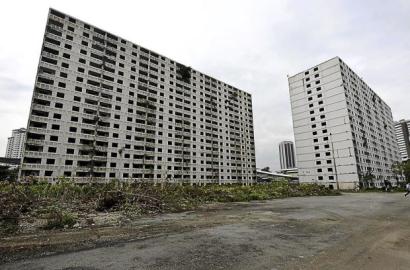Explore Our Exciting New Property Listings Now Available in Prime Locations!
The implementation of e-invoicing for Joint Management Bodies (JMBs) and Management Corporations (MCs) has sparked significant debate among property stakeholders. While the government’s push for digitalization aims to streamline tax administration and reduce fraud, many argue that the new requirement places an unnecessary burden on JMBs and MCs, which are often run by volunteers with limited resources and technical expertise.
The E-Invoicing Mandate
Under the new mandate, JMBs and MCs are required to issue e-invoices for all transactions, including maintenance fees, utility charges, and other services. This move is part of the Inland Revenue Board of Malaysia’s (LHDN) broader strategy to modernize the tax system and improve compliance.
However, critics argue that JMBs and MCs, which are typically non-profit entities managed by residents or volunteers, lack the financial and technical capacity to implement e-invoicing systems. Unlike large corporations, these organizations often operate on tight budgets and rely on manual processes to manage their finances.
Challenges Faced by JMBs and MCs
Technical Complexity: Many JMBs and MCs lack the technical expertise to adopt e-invoicing systems, which require specialized software and training.
Financial Burden: The cost of purchasing and maintaining e-invoicing software could strain the already limited budgets of these organizations, potentially leading to higher maintenance fees for residents.
Administrative Strain: Volunteers managing JMBs and MCs often juggle these responsibilities with full-time jobs, making it difficult to handle additional administrative tasks.
Calls for Reconsideration
Property management professionals and residents alike are calling for the government to reconsider the e-invoicing mandate for JMBs and MCs. They suggest that these organizations should be exempted or provided with additional support, such as subsidies for software purchases or simplified compliance requirements.
“While we support the government’s efforts to digitalize the economy, the implementation of e-invoicing for JMBs and MCs is impractical and counterproductive,” said a spokesperson for the Malaysian Institute of Property and Facility Managers (MIPFM). “These organizations need more time and resources to adapt to such changes.”
Potential Solutions
To ease the transition, stakeholders propose the following measures:
Exemption for Small-Scale Operations: JMBs and MCs managing smaller properties or operating on limited budgets should be exempted from the e-invoicing requirement.
Government Subsidies: Financial assistance or subsidies could be provided to help JMBs and MCs adopt e-invoicing systems.
Simplified Processes: A simplified version of e-invoicing tailored to the needs of JMBs and MCs could reduce the administrative burden.
The Way Forward
As the government continues to roll out its digitalization initiatives, it is crucial to consider the unique challenges faced by JMBs and MCs. A more flexible and supportive approach would ensure that these organizations are not unfairly burdened while still contributing to the nation’s digital transformation goals.
For now, the debate over e-invoicing for JMBs and MCs remains unresolved, with stakeholders urging policymakers to revisit the issue and find a balanced solution.

Catatan berkaitan:
Malaysia’s real estate market recorded steady growth across key sectors in the first half of 2025 (1H 2025), supported by strong data centre investments, infrastructure development and resilient domestic demand, according to Knight Frank Malaysia.
Property prices across the Klang Valley are set to rise this year, but the Selangor government has assured that buyers of state housing projects will not face unreasonable price hikes. State executive councillor for housing, Borhan Aman Shah, emphasised that...


